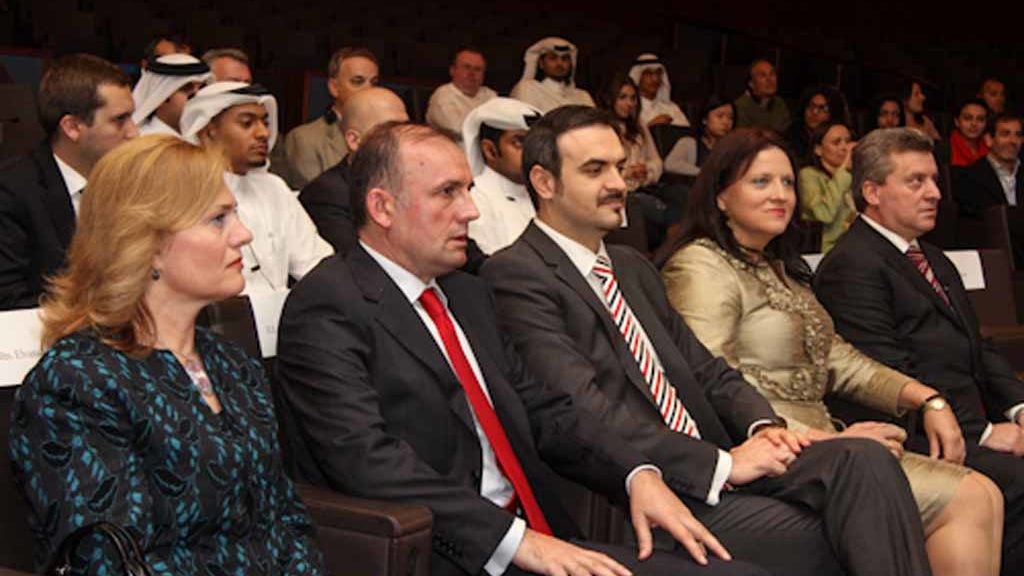Georgetown Hosts President of Macedonia on ‘Balkans and the Gulf’

Georgetown University School of Foreign Service in Qatar (SFS-Q) welcomed H.E. Professor Gjorge Ivanov, President of the Republic of Macedonia, who shared his perspectives on “The Balkans and the Gulf: the Crossroads of Civilizations” at a distinguished lecture held at the SFS-Q campus on Tuesday 29th January, 2013.
“It is always a deep honor and unique opportunity to host a world leader at SFS-Q. But in President Ivanov’s visit we have the added privilege of also welcoming him as a thinker, a researcher, and a renowned visiting scholar in his own right.” said Dean Gerd Nonneman.
Long before becoming Macedonia’s fourth elected president on 12 May 2009, Dr.Ivanov was actively involved in civil society and youth organizations as a university student. His interest in understanding the complexities of multi-ethnic societies culminated in a doctoral thesis entitled “Democracy and Divided Societies:the Case of Macedonia.”
Dr. Ivanov examined these complexities in his lecture, where he traced the history of the Balkans through the paradigm of an autochthonous understanding of the region, to highlight a long tradition of religious tolerance and inter-ethnic cooperation that he argues remains the key to a future of peaceful coexistence.
Rejecting entrenched definitions of the geopolitical term “Balkanization” as an “oversimplified and shallow interpretation”, Dr. Ivanov instead pressed the need for self-reflection in redefining conceptual frameworks about both the Balkans and the Gulf. “With only one book, Orientalism, Edward Said changed the perception about the Orient, about the East.” he said.
Citing examples from history, he painted a picture of a Balkan society that “showed themselves to be unusually open to foreign religious influences”, absorbing political and social traditions from the Romans, the Ottomans, and from each successive ruling empire. He summed up this tradition of Macedonian coexistence through dialogue in the symbol of the “komsi kapicik”-a small door in traditional architecture that remains open even when the gates between neighbors are locked.
In more recent history, Dr. Ivanov cites modern examples of Macedonia’s policy of coexistence and cooperation through an examination of the Macedonian Constitution, as well as through the peace-building contributions of the “Forum of the Dialogue among Civilizations” initiative launched in 2003 under the leadership of Macedonia and with the cooperation of UNESCO.
In the journey through a rich historical and cultural mosaic, Dr. Ivanov identified both the Balkans and the Gulf as “crossroads of civilizations … paved by empires, commerce, culture and religion.” But instead of presenting a fractured picture of competing interests, these nexus of history are “places where civilizations don’t clash, but communicate, interact, and merge, producing fertile ground for dialogue.”